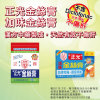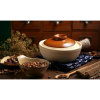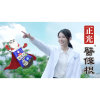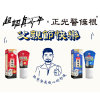The Cooling Blood and Dispelling Heat Effects of Gou Qi Root (Di Gu Pi)
Varietal Source
Gou Qi (Lycium barbarum), commonly known as Goji Berry, is a frequently used Chinese medicinal herb. Various parts of the plant, including the leaves, flowers, roots, and fruits, can be used for medicinal purposes, each possessing different medicinal properties. In spring, the leaves of Gou Qi are harvested and known as "Tian Jing Cao," which has specific pharmacological effects. During summer, the flowers are collected and referred to as "Chang Sheng Cao," known for different therapeutic characteristics. In autumn, the fruits are harvested, known as "Gou Qi Zi," with unique medicinal value. In winter, the roots are collected and called "Di Gu Pi," which has specific medicinal properties.
Origin of Di Gu Pi
Di Gu Pi is the root bark of Gou Qi (Goji Berry). After being dried and cut into pieces, it is used as a medicinal herb. Its properties are sweet, mild, and cold, with the effect of cooling the blood and dispelling internal heat. It is mainly used to treat symptoms of yin deficiency and heat, such as night sweats. Di Gu Pi can clear liver and kidney deficiency heat and is often combined with other herbs like Zhi Mu (Anemarrhena rhizome) and Bie Jia (Chinese softshell turtle shell). Furthermore, Di Gu Pi is used to treat coughs caused by lung heat. It is usually combined with Sang Bai Pi (Mulberry Bark) and Gan Cao (Licorice) in the formula Xie Bai San. Additionally, it can be used to treat bleeding conditions caused by blood heat, such as nosebleeds or blood in the urine. In these cases, it is often combined with Bai Mao Gen (Imperata rhizome) and Ce Bai Ye (Biota leaves).
Nature and Meridians
Sweet and cold. Enters the Lung, Liver, and Kidney meridians.
Functions and Indications
Di Gu Pi has the effects of cooling the blood and dispelling internal heat, clearing the lung and reducing fire. It is used for conditions such as yin deficiency with tidal fever, "bone-steaming" sensation (a sensation of heat that rises from the bones), night sweats, lung heat cough, hemoptysis, epistaxis, internal heat with polydipsia, and other symptoms. Besides the above-mentioned functions, Di Gu Pi also has the ability to generate body fluids and alleviate thirst. Especially during hot summer days, it is widely used as a refreshing herb. It is often combined with Sheng Di Huang (Rehmannia root), Tian Hua Fen (Trichosanthes root), and Wu Wei Zi (Schisandra fruit) in prescriptions for treating internal heat-induced polydipsia. Additionally, Di Gu Pi can be distilled into Di Gu Lu, a traditional remedy that is made by cooking Di Gu Pi with Gan Cao (Licorice), Hang Ju (Chrysanthemum flower), and Mai Men Dong (Ophiopogon root). This decoction has a sweet and bitter taste and is effective in reducing heat and relieving summer heat discomfort.
A Little Story About Di Gu Pi
Once upon a time, Empress Dowager Cixi felt chest discomfort and blurred vision. Despite being attended by court physicians, her condition did not improve. General Qian then shared a story with the physicians. It turned out that his mother had suffered from a similar illness before, and a local doctor had successfully treated her with Gou Qi root. The doctor washed and peeled the roots and prepared a decoction for her to drink. After that, his mother's health improved. Upon hearing this, the court physicians recommended General Qian to present the remedy to the Empress Dowager.
Empress Dowager Cixi immediately ordered General Qian to return to his hometown and fetch the medicine. Not disappointing the high expectations, General Qian brought back a large package of Gou Qi roots and personally prepared the decoction at the Imperial Hospital, which was then served to the Empress Dowager. After a few days, the Empress Dowager's vision gradually improved, and her spirit was much better. She asked General Qian about the miraculous medicine he used. To avoid suspicion, General Qian selected the auspicious name "Di Gu Pi" since the Chinese character "Gou" sounds similar to the character for "dog." The Empress Dowager praised it with delight, saying, "Wonderful! I have taken Di Gu Pi, and it shall grant me longevity in harmony with heaven and earth!" Since then, Gou Qi root has been called Di Gu Pi.
(Note: This is a fictional story added to the explanation of the herb's name and not based on historical events.)








